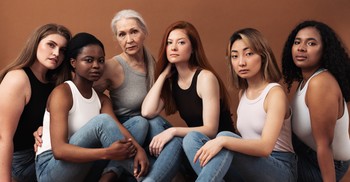Sometimes I wish we were all just a little simpler, a little bit closer to the extremes of black and white. It would be a lot easier if there were only good guys and bad guys, the fully orthodox and the outright heretic, with no overlap, no shades of gray, nothing in between.
But we are not so simple. They say that a broken clock gets it right twice a day—that is what we say about them, no matter who we and who they are. But then even the best of men are but men at best. We are all deeply flawed. Even our Christian heroes are full of shortcomings and blind spots. I am often amazed at how inconsistent other people are. I shake my head when I see the things they do, when I hear the things they believe—things that are otherwise so at odds with all they hold dear. Why can’t they see it? How can’t they see it? Yet in moments of honest clarity I know that I must be equally inconsistent and that I must be equally blind to my own peculiarities.
I could make a long list of reasons I so value biography, and if I did so this would be right near the top: Biography wrecks the easy categories of all-good and all-bad. A good biography displays its subject in his strengths and his weaknesses, and it does not minimize the tension of paradox. Our heroes have flaws and our villains have virtues.
A recent biography of A.W. Tozer exposed some of his unusual inconsistencies. Tozer saw his wife’s gifts for hospitality and encouraged her in them; yet he disliked having visitors in his home. He preached about the necessity of Christian fellowship within the family of Christ, yet refused to allow his family or his wife’s family to visit their home. He loved to challenge others with the gospel, yet woefully neglected the mission field of his own family. For every laudable area of his life there seemed to exist an equal and opposite error. No one can doubt his salvation or his love for the Lord, but neither can we or should we overlook such serious sin.
Arnold Dallimore’s biography of Edward Irving, Forerunner of the Charismatic Movement, is haunting. Dallimore grapples with a man who showed genuine fruit of conversion and repentance and who displayed an abundance of love for the Lord, yet who also held to something approximating baptismal regeneration and who elevated miraculous gifts over Scripture. The biography concludes with a tribute from Robert Murray McCheyne who said of Irving, “I look back upon him with awe, as on the saints and martyrs of old. A holy man, in spite of all his delusions and errors. He is now with his God and Saviour, whom he wronged so much, yet, I am persuaded, loved so sincerely.”
There are wolves among the sheep, no doubt. There really are heretics. There are some whose deepest flaw is that they hate God and choose to express that hatred through feigned love.
But there are many more who love the Lord, and yet who bring harm even while they bring such strength. As we survey our local churches, and as we survey our Christian heroes, we see this same paradox, this same tension. At some times and in some ways we all wrong so much the one we love so sincerely. Thank God that he is long-suffering and that he extends grace even to the inconsistent.








